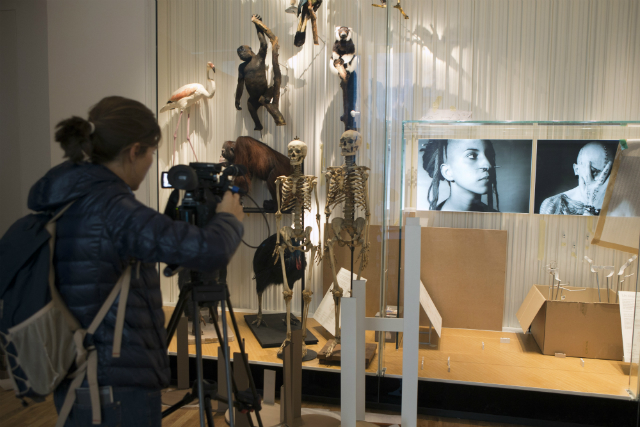AP Photo / Francois Mori
Humans have a tailbone for a tail we don’t have, wisdom teeth that don’t fit in our mouths, and tonsils that only seem to cause problems. Each of these “mistakes” can tell us a little bit about how we evolved and why we were so successful in spite of these flaws. We talk about our body’s quirks with biologist Nathan Lents, author of “Human Errors: A Panorama of Our Glitches, from Pointless Bones to Broken Genes.”
Three Takeaways
- Evolution and natural selection don’t result in perfect species. Instead, natural selection selects for minute differences that make individual members of the species more likely to survive long enough to pass on their genes.
- Human bodies are particularly flawed, compared to other species, partly because we evolved big brains. Our brain allowed us to work together and create technologies that help us solve problems. That has reduced the pressure on the body to perform optimally. We rely on one another so that each one of us doesn’t have to be perfect.
- There are downsides to having such a large brain. For example, humans have a lot of fertility problems and trouble reproducing. From high infant and maternal mortality rates to embryos inexplicably falling off the uterine wall, humans have a much harder time reproducing than other species.
More reading
- To celebrate the 150th anniversary of Charles Darwin’s “On the Origin of Species,” Scientific American analyzed Darwin's influence on modern thought.
- In a piece for The Guardian, science historian John van Wyhe explains why the controversial idea that Darwin stole his ideas on evolution from naturalist Alfred Russel Wallace is unfounded.
- Popular Science looks at how species are currently adapting to conditions on Earth.
More Listening
- In this web extra, Lents explains whether tonsils, wisdom teeth, and an appendix are really of any use to you:


